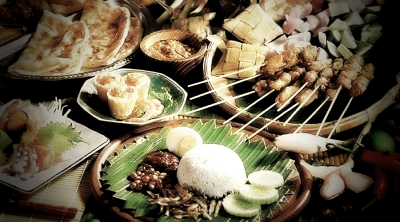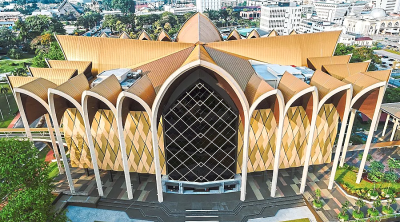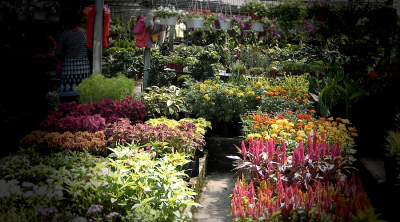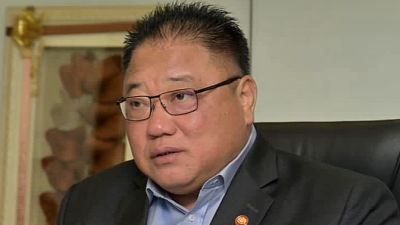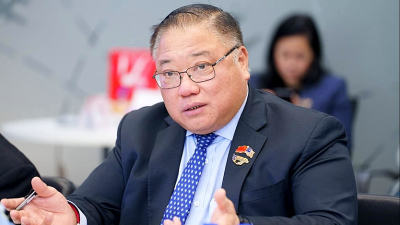By Tan Ming Luk

With Malaysia moving to the endemic stage and signs of recovery appearing, it is crucial to plan how the hospitality industry can benefit from pent-up demand when the economy fully revives.
The recovery of the tourism and hospitality sector will depend on rebuilding trust between tourism destinations and source markets, and here, the federal and state governments play a role in effectively aligning with the hospitality industry to achieve this.
In the absence of a clear roadmap to guide the industry in overcoming the effects of this pandemic, allow me to outline how supporting our hospitality industries will positively impact the economy of Malaysia.
Structural and physical changes to tourist destinations will be required to address health requirements and visitor expectations.
Implementation of standardized labeling under the Ministry of Health to certify safety and hygiene measures can allay anxiety among travelers, avoid confusion and improve trust and confidence.
These new labels can indicate hand sanitizer and handwashing facilities, physical distancing protocols and frequent cleaning procedures, as well as automated and contactless transactions, among others.
Proof of vaccination also helps.
In OYO’s markets worldwide, we have seen travel bookings rapidly rise once at least 40% of the population have received their first vaccine doses.
Recent OYO data show that properties with fully vaccinated personnel record a 220% increase in occupancy and a 180% increase in RevPar compared to properties that are not.
Financial relief, while not meant to replace the loss of business resulting from the pandemic, helps businesses cushion the impact by helping to reduce costs, spur demand and alleviate cash flow issues until travel volume recovers.
Costs can be reduced through deferment of licensing fees, sales and service taxes and more for one year.
With mechanisms already in place, it would be straightforward to implement.
Wage subsidies can also be extended until March 2022, which will benefit around 4.8 million SME workers.
Income tax deferment for companies in the tourism industry, previously introduced for travel agents, hotel operators, airlines and others for six months from April to September 2020, proved helpful, and we propose to reintroduce this initiative for SMEs in the tourism sector for an initial period of six months from October 2021 to April 2022, allowing these companies to defer their monthly income tax payments.
Although the original Visit Malaysia Year campaign is no longer relevant, efforts to engage our worldwide audiences and attract international tourists to Malaysia are still crucial at a time when they are thinking about their next oversea trips.
Amidst finding creative ways to engage audiences and gain mindshare, industry players need to come together under a thematic umbrella to restore traveler confidence and stimulate demand by positioning Malaysia as a safe and clean destination.
Safety is clearly a key concern among travelers. From a survey among 380 respondents, we determined that a vast majority of respondents (83.7%) preferred to stay in a hotel with fully-vaccinated employees, while also worrying about contracting COVID-19 during their travels and expressing concern about overcrowding in tourism hot spots and non-adherence to SOPs.
Meanwhile, a majority of business travelers (69.7%) also wished for proper physical distancing at events.
With the business events sector contributing RM3.9 billion in direct expenditure and generating RM9.2 billion in economic impact in 2019, having proper safety protocols is a must for its revival.
Future-centric policies
Today’s crisis is also an opportunity to rethink tourism for the future.
Policies put in place today should consider longer term implications, such as staying ahead of the digital curve, supporting the low carbon transition and promoting structural transformation for a more sustainable and resilient tourism economy.
The strategies laid out in the 12th Malaysia Plan to revitalize the tourism industry are a good start. Restoring tourist confidence, providing better quality products and services, enhancing the sustainability of tourism products, strengthening brand positioning and promotion, instituting governance reforms and intensifying domestic tourism will all help.
OYO is open to partner with industry players to adopt digitization for capturing tourist data and trends to improve planning, resource deployment and decision-making, and to promote domestic and community-based tourism via digital platforms.
Collectively, I am confident we will be able to create a sustainable ecosystem for the hospitality industry in Malaysia and achieve the tourism objectives laid out in the 12MP.
(Tan Ming Luk is Vice President and Head, OYO Malaysia & Singapore.)
ADVERTISEMENT
ADVERTISEMENT







